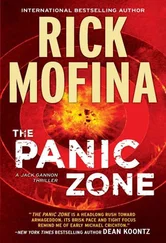As Angela continued her work analyzing latent fingerprints, some of her colleagues had already submitted their preliminary reports.
She checked her monitor, the latest one was for hair.
The presence of 4-amino-2-hydroxytoluene and m-Aminophenol on strands of hair found in the sink indicated hair dye was used. The blood found in a crumpled tissue under the bed matched the type found on the baby’s romper discovered at the shelter.
Some of the puzzle pieces were coming together, Angela thought, as she worked on the latent prints the FBI’s ERT people had collected. Because of all the circumstances, they all knew the quality of the latents would be weak, yielding only a few good clear partials.
Angela scanned the first two into her computer and submitted them to the automated fingerprint-identification systems, AFIS, for a rapid search through massive local, state and nationwide databanks for a match.
It wasn’t long before she got hits for two licensed drivers in Texas: Arb Winston, a sixty-nine-year-old man from San Antonio and Ella Winston, a sixty-eight-year-old woman from San Antonio. They shared the same address. No arrests, no convictions. Nothing came up for the Winstons in any other databases.
Angela reasoned that the Winstons were not likely involved, but still would pass the data to the FBI.
The third and last usable latent print was taking longer. Angela studied the arches, whorls and loops. It was from the right thumb, which in a standard ten-card is number one. She carefully coded its characteristics then scanned the print into her computer and submitted it to AFIS.
Within a minute, Angela started getting hits as her submission was searched through local and regional information sharing networks and the FBI’s mother of all databanks, the IAFIS, which stored nearly seven hundred million impressions from law enforcement agencies across the country.
As the process continued Angela left her desk to freshen her coffee.
When she returned she had her results: four files closely matched her unidentified submission.
Angela took a sip of coffee then set out to make a visual point-by-point comparison between the motel print and the four on the list. She zeroed in on the critical minutiae points, like the trail of ridges near the tip.
The dissimilarities eliminated the first two candidates right off. For the last two Angela enlarged the samples even more to count the number of ridges, and distinct differences emerged for one of them.
That left only one.
Angela concentrated on her submission with the computer’s remaining suggested match. All the minutiae points matched. The branching of the ridges matched. Her breathing quickened as she began counting up the clear points of comparison where the sample matched.
This is looking good .
In some jurisdictions the courts required ten to fifteen clear point matches. She had fifteen and was still counting, knowing that one divergent point instantly eliminated a print.
We’ve got a match .
Angela then took the identification number of her new subject, and submitted a query into a number of databanks.
She knew that the state’s parole division worked with other agencies to ensure that offenders on parole had their fingerprints on file so their cases could be tracked.
Angela watched as her submission verified parolee history, offender identification, arrest records, convictions, and checked for any holds and commitments for other law enforcement agencies.
Within minutes Angela was staring at the hardened face of a white male on her monitor.
She went to the offender’s central file summary and read quickly through his offences, then reached for her phone to call Special FBI Agent Phil Grogan.
This could be our break.
Dallas, Texas
After eating a bowl of warmed-over chili in his trailer behind the garage, Lamont Harley Faulk settled into his sofa with his laptop on his chest.
The garage was closed. Everything was quiet.
He clicked onto his favorite sites, belched, savored another cold beer and the sweet deal he had. He operated Ray’s Right Fix Auto Repair for Ray, an old ex-con now confined to a wheelchair in an old folks’ home. Lamont got a salary and he got to live rent-free in the trailer. He was also making a tidy sum by allowing certain people in need of disappearing, like that idiot Mason Varno and his woman, to hide out at his dead uncle’s place.
The old house was getting crowded.
Lamont was happy here-working on cars, rarely dealing with people and being left alone with his secret pleasures. He clicked on a video from Thailand showing pretty little boys. He liked the young ones.
The younger, the better.
He belched, took a swig of beer and settled back to enjoy the number the two pretty things were doing to the old dude. Lamont was catching a nice buzz and getting aroused when the dog’s yelping killed the mood.
He slammed his laptop shut.
Stupid dipshit. Likely smelled the chili. He’s gonna pay.
Lamont left the trailer, hit the yard lights and seized his baseball bat. He walked to the kennel, opened the gate and let loose on the dog, hammering the bat into its back, its stomach and legs. Panting in agony the animal limped into its shed, casting an angry look back at Lamont.
“Stay in there and shut the hell up!”
Lamont slammed the gate and tossed the bat.
“You’re lucky I let you live, you useless piece of crap!”
He stomped to the garage, opened the bay doors, hit the lights and resumed work restoring the chassis of the Model T. He fired up the grinder to remove rust when he saw a shadow and heard knocking out front.
Now what?
He went to the locked office door and saw an older man and a younger woman standing outside.
“I’m closed!” Lamont shouted through the barred glass.
“You’re Mr. Faulk, Lamont Faulk?” the man shouted back.
Lamont hesitated.
“We just need a moment of your time, sir.”
Lamont looked beyond them for a car, or other people. Who are they? Becoming uneasy he weighed possibilities and options. Was this a surprise visit from the parole people? He hadn’t missed any meetings. But the guy had an accent. European? What’s up with that? Maybe they were religious nuts. But how would they know his name?
“We just need your help-it won’t take long.”
“What is it?”
“May we come in?”
If they were parole people, his reaction would be noted.
Lamont unlocked the door and let them into what passed as a reception area. It had two sofas, with holes patched with duct tape, and two battered chairs.
The man was in his sixties, wearing a polo shirt, jacket and jeans. He was about Lamont’s height and looked to be in good shape. The woman might’ve been in her late twenties. Kinda pretty but in a plain way.
“Who are you? Are you from TDCJ?” Lamont asked.
“No, no. We just need your help, only a moment of your time.”
“Help with what?”
The old man’s eyes scanned the office, the garage bays and work benches. “Are there others here? We’d like to keep this private.”
“We’re all closed up… There’s just me. State your business.”
“What about the trailer we saw in the back with the light on?”
“That’s me. What do you want?”
The man produced some folded pages from his jacket, and for the first time Lamont noticed he was wearing gloves. He unfolded pictures from Hightower prison.
“I understand you know this man, Mason Varno, who’s been known to use various aliases?”
Lamont shook his head. “No, I don’t believe I do.”
The older man’s eyes gleamed, and his skin crinkled around them as he smiled at Lamont.
Читать дальше
Конец ознакомительного отрывка
Купить книгу












